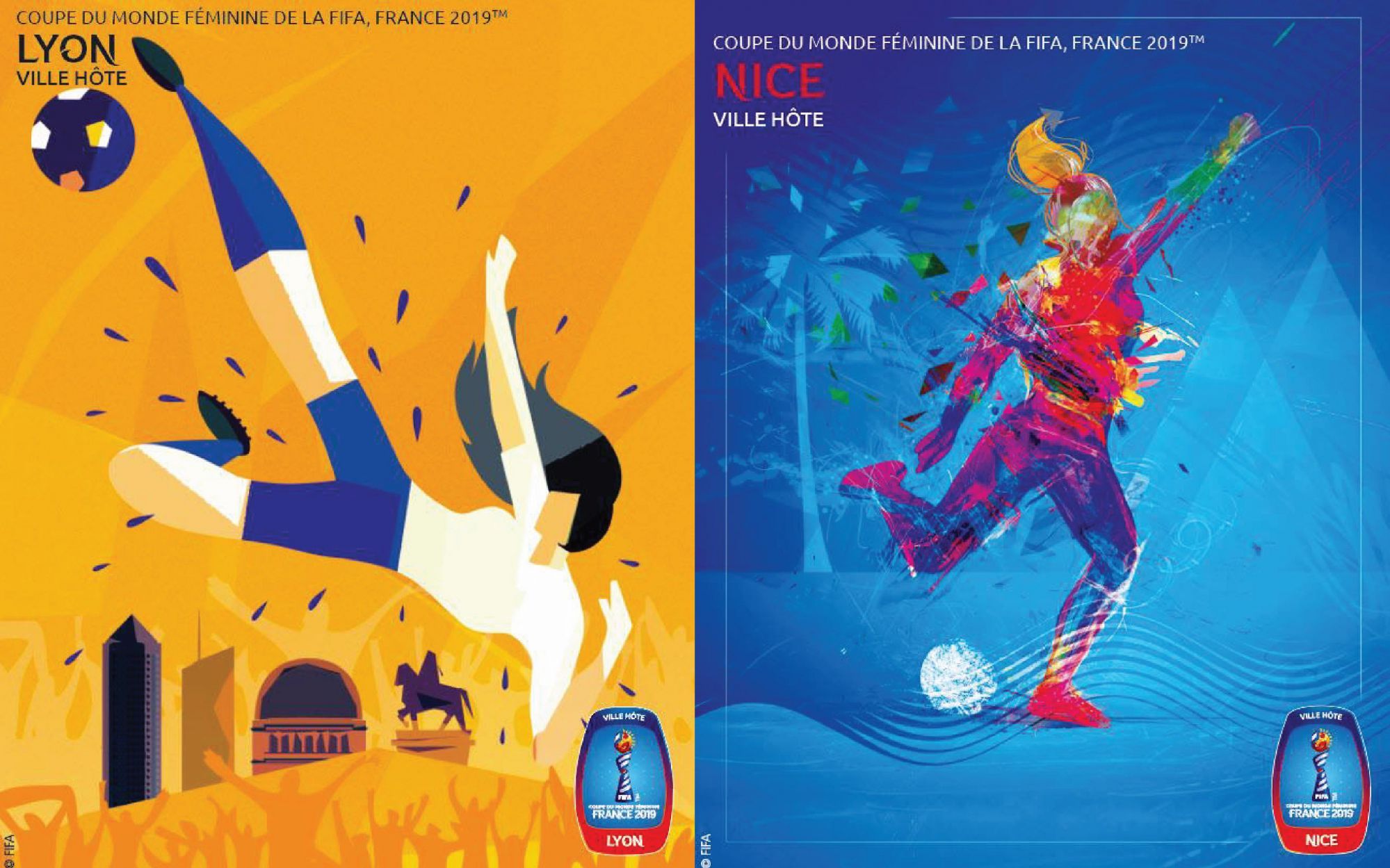One good thing about music, when it hits you, you feel no pain.~ Bob Marley
You don’t have to be a Bob Marley or reggae fan to be familiar with this Bob Marley quote; you only need to be on any social media platform. Social media and reggae music aside, this quote holds a lot of truth. I am often in search of what connects us as humans and is able to enable us take off our superficial cover and strip us bare and lose us in the moment and so far, I’ve discovered books, music and sports does that. Books- for the immense knowledge and in the way they connect us to our faith, it shows us what to look for and how to deal with what we find. Music- there nothing that can lift the spirit like it and for centuries, men have sought it. Sports- our need to thrive for and prove our excellence means we’ll always seek it out. I’ve played with the idea of war because we prepare for it and always seem to want it but, the fog of pain is too much.
In 1930, Uruguay hosted the first ever World Cup, 18 days, 18 matches and 70 goals later, FIFA knew they were on to something. Football brought the World together, the dribble, goals, tackles, and display of talent and skill, produced its own rhythm and everybody understood it.
It was imperative to ensure that the World Cup held its charm in a way that will keep the world waiting for it but not too long as to forget. “Four” became the golden number. Four years is the perfect length of time to miss it enough yet not long enough to forget it. Four is just right for a player to have gone through growth in their game, so the business decision was made.

Since 1930, the Men’s World Cup has held every four years save for 1942 and 1946 because of the Second World War. In 1950, the world was gifted another competition and it wasn’t until 1962 that FIFA fixed a key piece of this amazing tournament, it was glorious music! Watching players almost or in tears while they sing their national anthem and watching fans make music from whatever they can find to tell the world of their football passion was the right kick in the butt for FIFA and from 1962 till date, every Men’s World Cup have had official anthems and songs and in English, Spanish and other languages.
Music is critical to football because in itself, it does create a rhythm. The mere art of paying homage to the beautiful game, is also respecting the people that have come to give meaning to football by simply loving it. Over the years, this has proved to be true- from the first ever El rock Del Mundial to A special kind of hero and even Glory land. Most adults today can still chant Ricky Martin’s The Cup of life or argue about Anastacia’s Boom. 1986 and 1990 was a really special year because “Hot Hot Hot” and Un’estate italiana are still on my playlist and I also currently added waving flag for the tenth time having failed to discover why it keeps vanishing and also for effect, Shakira’s “waka waka” is on my top 20 karaoke list. I fail at singing but, nothing could ever separate me from my music and FIFA knows that there are millions of people like me all around the world. Adding official songs and anthems was a nice touch but, it was also a business decision.
Amid the passion, tears, banter, victories, losses, questionable referee decisions that goes on during the World Cup, there is the business angle of it all. Your host nation is not just a host nation, they must prove themselves worthy of bringing the cash cows (fans) and there are other marketing and business decisions, from ticket sales to merchandise and all these little things that the average fan tends to forgive and forget because football in a way is such a religion that must be discussed void of external influences.
FIFA has built an admirable business empire and are ruthless in protecting their rights and properties and that shrewd business sense has seen them become richer than some countries. The 2018 Men’s World Cup raked an estimated 6.1 billion dollars in revenue-10 percent more than FIFA had estimated for the tournament and 1.3 billion dollars more than the last World Cup produced in 2014. It is facts and figures like these that would make me argue that the Women’s World Cup brings less in revenue not because they are women but, FIFA is still failing to apply the same business principles to the women’s tournament.
The first ever Women’s tournament was held in 1991 and the world cup in France would be the 8th tournament in 28 years and FIFA is still grappling for ways to make it more profitable while making us believe every avenue has been explored. Well for starters, the Women’s World Cup still does not have an official anthem or a song.
Music is (almost) everything and when used in the exploration of art in any form, has the ability to change it. There is a huge demographic of people who don’t care about football but, somehow every four years when the Men’s World Cup comes around, everybody pays attention and I strongly believe the music also has something to do with it. Music connects us, it creates a mood and builds anticipation and every tournament is deserving of it.
South Africa 2010 was a big hit not just because it was Africa’s first time but, the music that came with that tournament was a testament to the fact that dreams do come true.
In 2011, FIFA and Sony Music Entertainment announced a song “Happiness” by Alexis Jordan as the official 2011 Women’s World Cup song but, a quick YouTube search of the song will lead you to Alexis’ own YouTube page and absolutely nothing on FIFATV about the song. Clearly there is a huge disparity in how the Men’s tournament and the Women’s tournament is handled and FIFA owns the blame or at least 80% of it and 10% rests with big media and their coverage of sports the other 10% is for the fans.
Let’s do a quick breakdown of how FIFA and money works. When it comes to tournaments, FIFA does not really pay for it, they throw it open for interested countries to step in and make a bid then they choose a winner. The host country benefits from the tourism each FIFA tournament brings and it opens up their country and potential to investors. FIFA benefits from their ability to franchise, license, sell rights and attract sponsors. In the 2011–2014 financial period, FIFA raked in 5.7 billion dollars in revenue and 338 million dollars in profit. In 2018, they made an estimated 6.1 billion dollars in profit.
FIFA is not all about making money, they also spend money. A huge chunk of their expenses goes into developing projects and supporting the growth of football around the world. 72 percent of overall outflow was invested directly in football during the period 2011–2014. Growth of football around the world means that FIFA is doing its job because football is a known catalyst of change and beyond FIFA tournaments, the leagues all around the world is prove enough.
For most fans of women’s football, 2019 is a peculiar year and it is not just about the World Cup in France but, the immense growth of women’s football and the unapologetic talent they constantly display. I believe that it is time to make an official anthem and a song a norm for the Women’s World Cup.
The Women’s World Cup is football and just like any other football, it carries its charms and appeal, emotions and drama, talents and skills and also the power to connect. When whistle goes off in France, every kick and tackle with also create its own rhythm. Every time the fans chant, they will spur their team n to achieve glory but, in all of these, do you know what will be missing? It’s an official song.
Football tournaments create memories and we often attach those memories to key moments, actions and even the tournament’s song. As much as it is for the fans, it is a marketing strategy.
It is time to add that grandeur to the Women’s World Cup. A song that’ll help us remember, a song that might top the billboard chart or even spur younger generations to dream even harder.
Finding a musician to seamlessly deliver should not be a problem and if a vote is ever called for, I vote for badgal Riri.
One good thing about music, when it hits you, you feel no pain.~ Bob Marley
You don’t have to be a Bob Marley or reggae fan to be familiar with this Bob Marley quote; you only need to be on any social media platform. Social media and reggae music aside, this quote holds a lot of truth. I am often in search of what connects us as humans and is able to enable us take off our superficial cover and strip us bare and lose us in the moment and so far, I’ve discovered books, music and sports does that. Books- for the immense knowledge and in the way they connect us to our faith, it shows us what to look for and how to deal with what we find. Music- there nothing that can lift the spirit like it and for centuries, men have sought it. Sports- our need to thrive for and prove our excellence means we’ll always seek it out. I’ve played with the idea of war because we prepare for it and always seem to want it but, the fog of pain is too much.
In 1930, Uruguay hosted the first ever World Cup, 18 days, 18 matches and 70 goals later, FIFA knew they were on to something. Football brought the World together, the dribble, goals, tackles, and display of talent and skill, produced its own rhythm and everybody understood it.
It was imperative to ensure that the World Cup held its charm in a way that will keep the world waiting for it but not too long as to forget. “Four” became the golden number. Four years is the perfect length of time to miss it enough yet not long enough to forget it. Four is just right for a player to have gone through growth in their game, so the business decision was made.

Since 1930, the Men’s World Cup has held every four years save for 1942 and 1946 because of the Second World War. In 1950, the world was gifted another competition and it wasn’t until 1962 that FIFA fixed a key piece of this amazing tournament, it was glorious music! Watching players almost or in tears while they sing their national anthem and watching fans make music from whatever they can find to tell the world of their football passion was the right kick in the butt for FIFA and from 1962 till date, every Men’s World Cup have had official anthems and songs and in English, Spanish and other languages.
Music is critical to football because in itself, it does create a rhythm. The mere art of paying homage to the beautiful game, is also respecting the people that have come to give meaning to football by simply loving it. Over the years, this has proved to be true- from the first ever El rock Del Mundial to A special kind of hero and even Glory land. Most adults today can still chant Ricky Martin’s The Cup of life or argue about Anastacia’s Boom. 1986 and 1990 was a really special year because “Hot Hot Hot” and Un’estate italiana are still on my playlist and I also currently added waving flag for the tenth time having failed to discover why it keeps vanishing and also for effect, Shakira’s “waka waka” is on my top 20 karaoke list. I fail at singing but, nothing could ever separate me from my music and FIFA knows that there are millions of people like me all around the world. Adding official songs and anthems was a nice touch but, it was also a business decision.
Amid the passion, tears, banter, victories, losses, questionable referee decisions that goes on during the World Cup, there is the business angle of it all. Your host nation is not just a host nation, they must prove themselves worthy of bringing the cash cows (fans) and there are other marketing and business decisions, from ticket sales to merchandise and all these little things that the average fan tends to forgive and forget because football in a way is such a religion that must be discussed void of external influences.
FIFA has built an admirable business empire and are ruthless in protecting their rights and properties and that shrewd business sense has seen them become richer than some countries. The 2018 Men’s World Cup raked an estimated 6.1 billion dollars in revenue-10 percent more than FIFA had estimated for the tournament and 1.3 billion dollars more than the last World Cup produced in 2014. It is facts and figures like these that would make me argue that the Women’s World Cup brings less in revenue not because they are women but, FIFA is still failing to apply the same business principles to the women’s tournament.
The first ever Women’s tournament was held in 1991 and the world cup in France would be the 8th tournament in 28 years and FIFA is still grappling for ways to make it more profitable while making us believe every avenue has been explored. Well for starters, the Women’s World Cup still does not have an official anthem or a song.
Music is (almost) everything and when used in the exploration of art in any form, has the ability to change it. There is a huge demographic of people who don’t care about football but, somehow every four years when the Men’s World Cup comes around, everybody pays attention and I strongly believe the music also has something to do with it. Music connects us, it creates a mood and builds anticipation and every tournament is deserving of it.
South Africa 2010 was a big hit not just because it was Africa’s first time but, the music that came with that tournament was a testament to the fact that dreams do come true.
In 2011, FIFA and Sony Music Entertainment announced a song “Happiness” by Alexis Jordan as the official 2011 Women’s World Cup song but, a quick YouTube search of the song will lead you to Alexis’ own YouTube page and absolutely nothing on FIFATV about the song. Clearly there is a huge disparity in how the Men’s tournament and the Women’s tournament is handled and FIFA owns the blame or at least 80% of it and 10% rests with big media and their coverage of sports the other 10% is for the fans.
Let’s do a quick breakdown of how FIFA and money works. When it comes to tournaments, FIFA does not really pay for it, they throw it open for interested countries to step in and make a bid then they choose a winner. The host country benefits from the tourism each FIFA tournament brings and it opens up their country and potential to investors. FIFA benefits from their ability to franchise, license, sell rights and attract sponsors. In the 2011–2014 financial period, FIFA raked in 5.7 billion dollars in revenue and 338 million dollars in profit. In 2018, they made an estimated 6.1 billion dollars in profit.
FIFA is not all about making money, they also spend money. A huge chunk of their expenses goes into developing projects and supporting the growth of football around the world. 72 percent of overall outflow was invested directly in football during the period 2011–2014. Growth of football around the world means that FIFA is doing its job because football is a known catalyst of change and beyond FIFA tournaments, the leagues all around the world is prove enough.
For most fans of women’s football, 2019 is a peculiar year and it is not just about the World Cup in France but, the immense growth of women’s football and the unapologetic talent they constantly display. I believe that it is time to make an official anthem and a song a norm for the Women’s World Cup.
The Women’s World Cup is football and just like any other football, it carries its charms and appeal, emotions and drama, talents and skills and also the power to connect. When whistle goes off in France, every kick and tackle with also create its own rhythm. Every time the fans chant, they will spur their team n to achieve glory but, in all of these, do you know what will be missing? It’s an official song.
Football tournaments create memories and we often attach those memories to key moments, actions and even the tournament’s song. As much as it is for the fans, it is a marketing strategy.
It is time to add that grandeur to the Women’s World Cup. A song that’ll help us remember, a song that might top the billboard chart or even spur younger generations to dream even harder.
Finding a musician to seamlessly deliver should not be a problem and if a vote is ever called for, I vote for badgal Riri.


